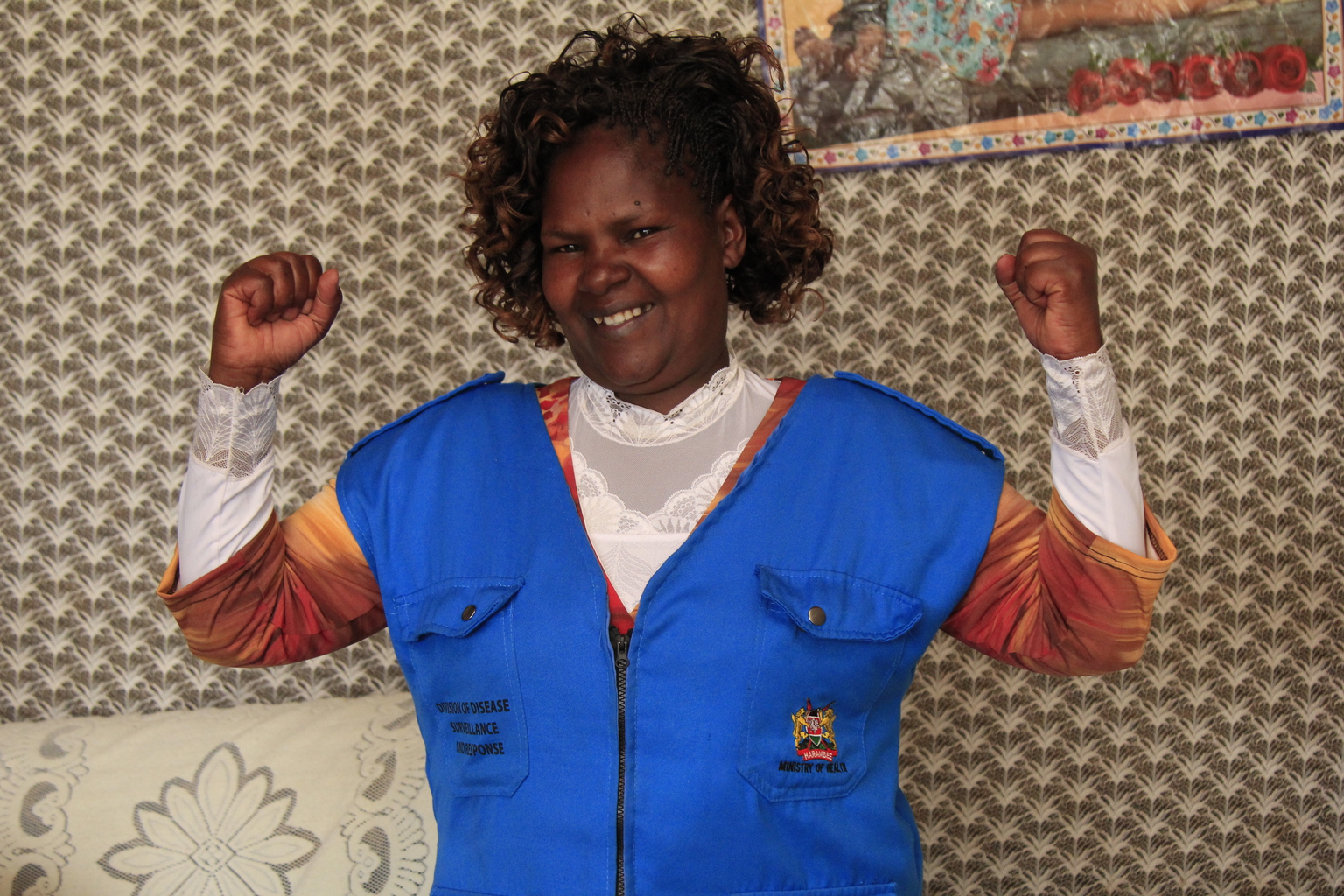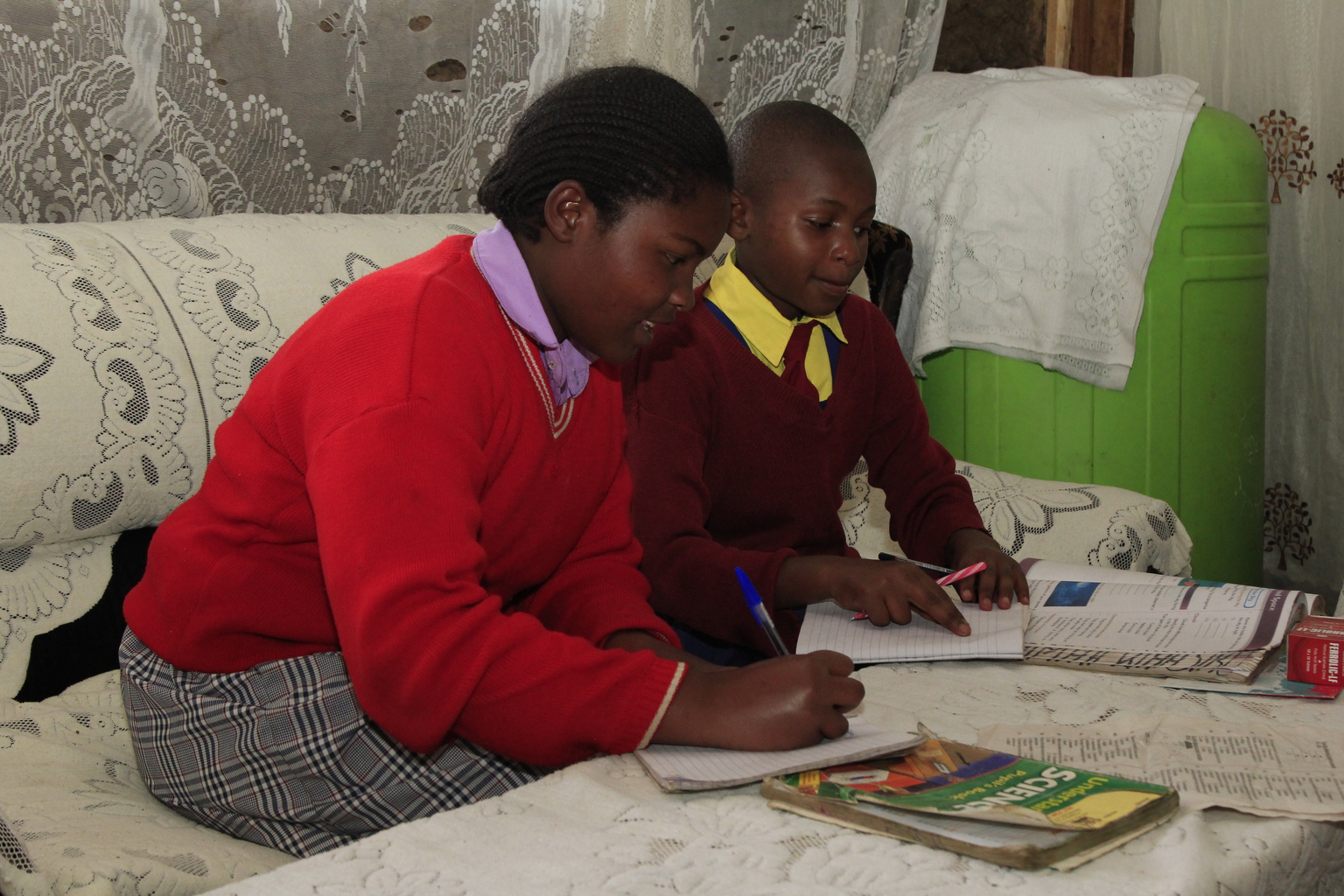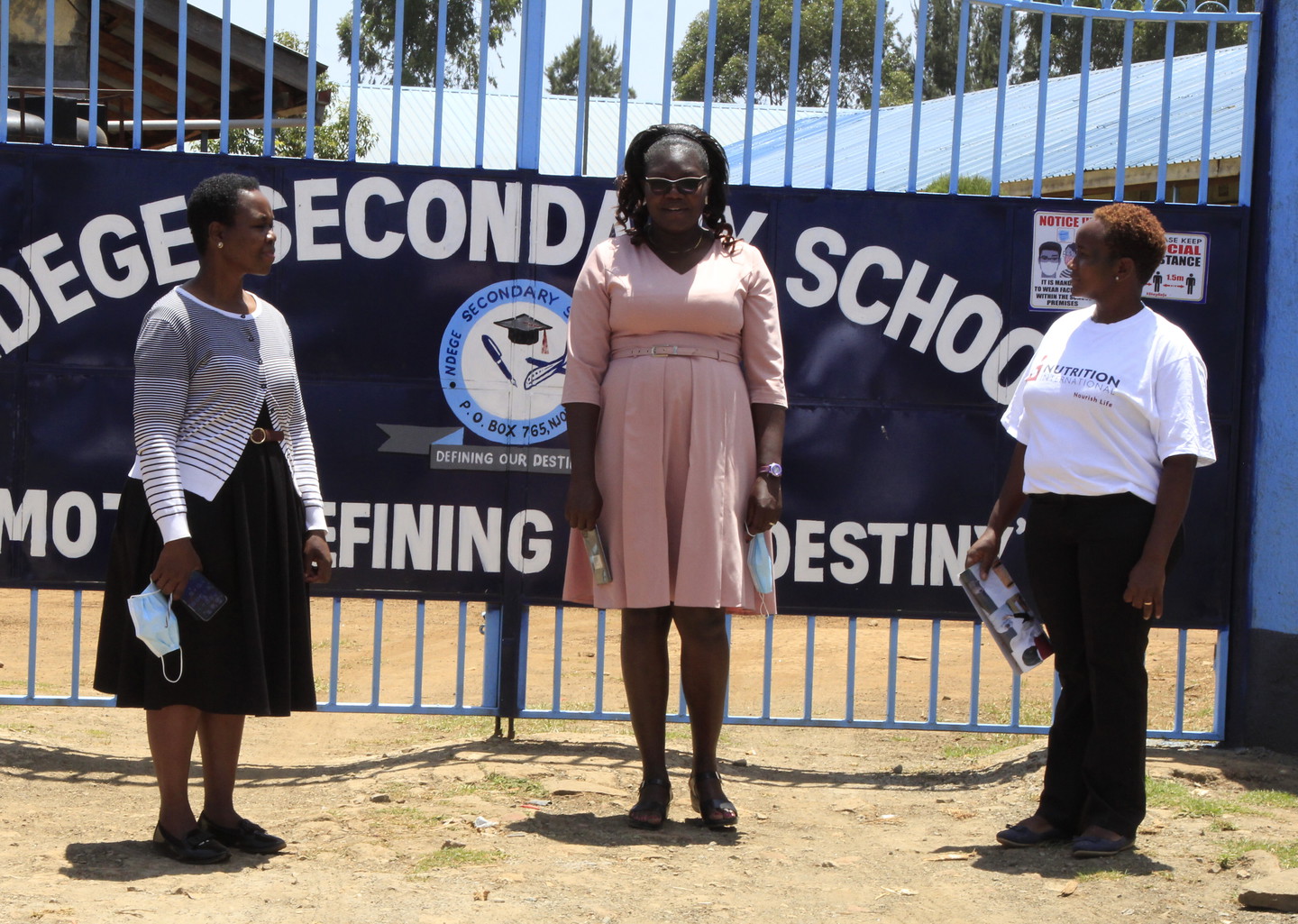Stories
Girls’ club boosts confidence and takes on malnutrition
October 4, 2024
WP_Term Object
(
[term_id] => 49
[name] => Field Stories
[slug] => all-field-stories
[term_group] => 0
[term_taxonomy_id] => 49
[taxonomy] => news-category
[description] => Discover the personal stories of people whose lives have been impacted by better nutrition, and those working tirelessly to deliver it.
[parent] => 0
[count] => 180
[filter] => raw
)
Community health volunteer goes door-to-door in support of adolescent girls’ nutrition
During the pandemic, a mom and community health volunteer in Kenya became a nutrition education advocate. She didn’t want her daughters, and other girls in her community, to fall behind.
Posted on March 4, 2021
The COVID-19 pandemic has disrupted daily life, threatened livelihoods, and disproportionately impacted women and girls with the potential to undo decades of gender equality work. Maureen Wangari, a farmer in Nakuru County, Kenya, stepped forward to turn these obstacles into opportunities.
Wangari is a community health volunteer (CHV) in Jewathu, Kenya, where she lives with her family. In September 2020, Wangari participated in a training from Nutrition International through the county government of Nakuru. She was one of 292 CHVs trained on adolescent nutrition and anaemia prevention in the COVID-19 context.
“Since I got that training, I have been interacting a lot in the community and I’ve seen a lot of change,” Wangari said.
Nutrition International and county officials developed the training for CHVs to address a critical problem. When the pandemic forced schools to close, it cut off access to iron and folic acid supplements distributed weekly through schools. The supplements are a proven and effective intervention to prevent anaemia. In Kenya, anaemia prevalence is 16% among adolescent girls aged 10-14 years and 14% among girls aged 15 to 19. Anaemia among pregnant women is 42% and the rate of teenage pregnancy and motherhood is 18%. In 2016, Nutrition International started an adolescent program to target girls aged 10-19 years with nutrition education and supplements to prevent anaemia, providing them with knowledge that will impact them long after their teen years. When the pandemic hit and in-classroom learning halted, the team pivoted to explore alternative methods to support girls during this crucial phase of development.

Maureen Wangari is a community health volunteer in Kenya. She provided essential education to families on anemia prevention and adolescent health when schools were closed due to COVID-19.
While observing social distancing, Wangari started going door-to-door spreading awareness about good nutrition to adolescent girls in her community and mobilizing them to access iron and folic acid supplements from the nearby health facility. She was responsible for reaching 95 girls in her area and mapped out a route to visit half of them on Thursdays and the other half on Saturdays.
At first, reactions to her visits were mixed. Wangari came across several households where parents were not familiar with the benefits of supplements. Rumours had spread that they were for family planning or would make it impossible for their daughters to get pregnant later in life. Faced with misinformation, Wangari explained the purpose of the supplements − how they helped boost the production of red blood cells in the body to promote health overall. She talked about the fatigue and lack of concentration girls can experience because of anaemia, and that taking the supplement would help prevent this.
Wangari could relate to the reluctant parents. Prior to the training with Nutrition International, she said she also had not fully accepted the program in her daughters’ school. One of her daughters would hide her supplements because she knew her mother would tell her not to take them. That shifted with Wangari’s newfound understanding − and by sharing her knowledge with her neighbours she changed community perceptions as well.
“Through supplementation and good nutrition our children’s performance has improved,” Wangari said. “Their grades have improved too. They feel energetic, happy, healthy and they are hardly absent from school.”

Wangari’s daughters Maryanne (left) and Jemimah (right) received nutrition education directly from their mom when schools were closed.
As Wangari spoke, two of her daughters sat quietly by, working on their science homework. Jemimah is in Grade 4 and Maryanne is in Grade 8. Jemimah said she plans on being a doctor when she grows up, wanting to help others like her mom. “Before I started getting the supplements I used to feel weak,” she shared. “Now, I am able to concentrate and understand what the teacher says in class better.”
Maryanne said she felt the difference when supplements became available at the nearby health facility. “It has helped us to have good concentration and to have more energy.” Maryanne also said she’s eating more green vegetables now that her mother is a nutrition advocate. “She has been a good role model to us and to the community.”
As a mom of girls, Wangari feels the importance of the program first-hand. “This project can bring equality between girls and boys,” she said. “Nowadays girls attend school because they are feeling strong and can put effort into their studies. This is something I have witnessed especially when their marks improved. When girls get educated, they will have well paying jobs and they will grow to become doctors, engineers or pilots. So, we cannot say that these professions are only for boys because girls are not good enough.”
Agnes Mauko, a teacher at Ndege Secondary School in Njoro, Nakuru County, saw rates of female absenteeism drop once her school started implementing the adolescent nutrition program in 2018. “Before we had the supplementation of the iron and folic acid… girls weren’t concentrating in class. They were sleepy. They were drowsy,” Mauko said. “But after the supplementation I have noted a very great improvement.”

High school teacher Agnes Mauko (middle) with the sub-county nutritionist and Nutrition International staff.
When the pandemic forced schools shut, Mauko didn’t want her students to be negatively affected. “At the beginning we were very worried. We didn’t know if the program could push through,” she shared. But parents started to call, demanding school closures do not disrupt supplement distribution. The school worked closely with county and sub-county health workers and CHVs, and was able to continue handing out supplements to students who lived close-by, reaching over 90% of the female students.
In January 2021, schools reopened for in-classroom learning in Kenya and with it the adolescent nutrition program is back to business as usual. Wangari’s daughters are back in the classroom, but she’s not stopping her advocacy work. She’s continuing to visit the adolescent girls in her community to understand how they are doing, check that they are taking their supplements regularly, and share her nutrition knowledge. If it ever becomes challenging to distribute through the schools again, she said the program can be brought back to the community. She is ready.